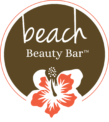Like many skincare products, sun protection can be confusing, and there’s a lot of opposing information out there about the various types of sunscreens and which is best. Natural? Physical? Mineral? Chemical? What does it all mean? All valid questions where answers are much needed.
There’s no doubt that sunscreen is essential. Not only does SPF protect against the sun’s harmful rays, but it’s also one of the best anti-aging products you can buy.
When it comes to sunscreen – just like any skincare product – there are dozens of brands, ingredients and formulas on the market. Choosing the best sun protection doesn’t have to be difficult. Ultimately though, all sun protection falls into two categories: chemical sunscreen and physical sunscreen.
What Are Physical Sunscreens?
Physical sunscreens contain active mineral ingredients, such as titanium dioxide or zinc oxide, which work by sitting on top of the skin to deflect and scatter damaging UV rays away from the skin. They offer protection against both UVA and UVB rays and protect from the sun as soon as they are applied. You may also hear them referred to as mineral or natural sunscreens.
Climate change, pollution, and other environmental factors are slowly eroding the health of coral reefs around the world, which in turn can affect the health of the oceans. But some of the ingredients in sunscreen may damage delicate coral reef systems as well. Up to 6,000 tons of sunscreen are estimated to wash into coral reefs around the globe each year.
Living on the edge of the great Pacific, we have a collective responsibility to protecting it! Physical SPFs are reef safe and should be the only sun protection you use at the beach.
Physical sunscreens are less likely to clog pores.
The downside? They can feel heavy, leave a film on the skin, and can rub or sweat off easily (which means you’ll need to reapply more often). Physical sunscreens have come a long way from their chalky, white, hard-to-spread predecessors.
What Are Chemical Sunscreens?
Chemical sunscreens contain organic (carbon-based) compounds that create a chemical reaction and work by changing UV rays into heat, then releasing that heat from the skin.
Chemical sunscreens tend to be thinner and, therefore, spread more easily on the skin, making them more wearable for daily use. Less is needed to protect the skin because there is no risk of leaving spaces between the sunscreen molecules after application. Chemical sunscreen formulas tend to be easier to add more skin-benefiting ingredients to (think: peptides and enzymes).
Beach Beauty Bar Sunscreen’s
- UV Shade SPF 40
UV Shade SPF 40 is a sheer, tinted facial mineral sunscreen that offers beautiful sun protection with a matte finish. It’s the perfect SPF for oily skin, as it tones it way down. We love this SPF for its silky matte finish. Our client’s LOVE to use it as a makeup primer and it’s our best selling SPF.
- Ultra UV Shade SPF 40
Ultra UV Shade SPF 40 is a moisturizing mineral sunscreen suitable for all skin types and tones. Sheer and virtually invisible on even the darkest skin tones. This sunscreen is like satin on your skin leaving an elegant dewy finish. Designed for the dry in mind, Ultra UV Shade is moisturizing and perfect for those needing a little more moisture in their daily skincare routine.
*PRO TIP: Blend UV Shade with Ultra UV Shade for the ultimate SPF experience. Our lifelong clients swear by these two blended together and so do we. The blend is the perfect amount of moisture plus beautiful coverage for everyday use.
- Sun Guard SPF 30 (physical)
Sun Guard SPF 30 is acne-safe and is appropriate for all skin types. It doesn’t leave the skin looking pale after applying on medium to dark skin tones. It truly is perfection in sun protection! A great daily SPF for those who don’t want any added color or tint.
- SolRX’s SPF 50 Zinc Oxide Sunscreen
SolRX SPF 50 sunscreen with Zinc Oxide is oil-free and was engineered especially for athletes to go on clear with a matte finish so athletes can focus on play and exercise, instead of how pale they look. This is the best SPF to use when you are beach bound or headed to the pool. It’s waterproof and it’s got our lifeguard client’s seal of approval. If you are a swimmer or water polo player, SolRx is for you!
Which One Is Best For You?
Physical sunscreens sit on top of the skin and block rays at the surface, chemical sunscreens absorb them, like a sponge.
We believe any sunscreen is better than no sunscreen to help protect your skin from UV damage. That’s why we offer a range of SPF and tinted sunblock that suit different needs and lifestyles.
So, which one is best? It’s a trick question (sort of). When it comes to acne-prone skin, the type of sunscreen you choose can make a difference. Two things can cause sunscreen-related breakouts: occlusion of the pores by comedogenic materials or a sensitivity reaction to chemical UV-blocking ingredients.
Also, for some people with darker skin types it can be difficult to find a physical sunscreen that doesn’t make skin appear pasty. No matter what formula you choose, always remember to reapply your sunscreen every two hours as well as after swimming.
The Bottom Line
The bottom line is that sun protection is an everyday necessity, and how you achieve it remains your call. As long as the sunscreen offers SPF 30 or higher, broad-spectrum protection, and is water-resistant, it can be effective against UV damage.
Schedule an initial consultation and treatment today, so we can get you on the road to clear glowing healthy skin!
Cheers to clear!
Rene




